
Ο Τούρκος Υπουργός Εξωτερικών κ. Ahmet Davutoglu δήλωσε ότι σε περίπτωση που τον Δεκέμβριο του 2009 δεν αρχίσουν οι ενταξιακές διαδικασίες της Τουρκίας στην ΕΕ, δεν είναι σίγουρος ότι η χώρα του έχει αποκτήσει τα εθνικά της σύνορα όπως αυτά καθορίζονται από την συνθήκη της Λωζάνης το 1923.
http://islamizationwatch.blogspot.com/2009/10/turkeys-european-stalemate.html
The EU commission has this year in its annual progress report on Turkey injected a note of urgency with regard to the main obstacle to Turkish membership – Cyprus.
As a prelude to the start of accession talks in October 2005, Turkey was required to sign an additional protocol to the association agreement extending the customs union to 10 new member states.
However, as Turkey refused to recognise that the sovereignty of the Republic of Cyprus extends to the whole island, Tony Blair had to cajole the prime minister, Recep Tayyip Erdogan, into signing by stating at a joint press conference "the legal fact, which is the signing of the protocol does not involve the recognition of Cyprus". Consequently, Turkey counterbalanced its signature two days later with a declaration that this in no way amounted to recognition.
The EU took a different view, when it in September 2005 declared that Turkey's declaration has no legal effect on Turkey's obligations under the protocol. As a result of Turkey's refusal to open its ports and airports to Cypriot ships and aircraft, in December 2006 the EU council decided not to open eight of the negotiating chapters. As Turkey still fails to honour its commitment, the council will have to decide at the EU summit in December whether it will impose further sanctions.
With the fall of the Berlin Wall and a settlement in Northern Ireland, Cyprus is the longest-lasting European conflict to be resolved. Like Ireland – with the Plantation of Ulster in 1611 – the Cyprus question is both colonial and a consequence of its strategic position. As the Arab geographer Al-Muqaddasi noted in 985: "The island of Qubrus is in the power of whichever nation is overlord in these seas." For this reason, the island was occupied by the crusaders in the 12th century and later by the Venetians. With the Turkish conquest of Famagusta in 1571 by the Ottomans the island's fate was sealed. But 3,000 years of Hellenic civilisation was not to be denied. The Greek revolt in 1821 against Turkish rule was supported by Greek Cypriots and the beginning of British rule almost 60 years later sharpened national awareness. This culminated in a terrorist campaign in 1955 for enosis (union) with Greece, which was met with a demand for taksim (partition) by the Turkish-Cypriot minority. Ultimately, the cold war and Cyprus's strategic importance was the deciding factor, and a shaky constitution was brokered by Greece and Turkey with Britain's assent in 1959.
The collapse of this "constitutional oddity" four years later led to inter-communal fighting and the threat of Turkish intervention. This – and war between Greece and Turkey – was warded off by a stiff warning from US President Lyndon Johnson to Turkey, but the threat remained.
However, in 1974 the boot was on the other foot, and the Turkish invasion in response to a coup organised by the Greek junta has resulted in – until now – the division of the island into two zones. Since then UN efforts for reunification have proved to be a political graveyard for four secretaries-general and countless envoys, and the question is whether the final effort led by the leaders of the two communities, Demetris Christofias and Mehmet Ali Talat, will succeed. Turkey's prospects of EU membership depend on the answer but although there is general agreement by the two leaders on the parameters for negotiation – a federation consisting of two constituent states with a single sovereignty – there is considerable divergence in interpretation. The main obstacles to an agreement – and which torpedoed the Annan Plan in 2004 – are Turkey's insistence on maintaining a military presence on the island and Turkey's policy of colonisation with mainland Turks. Indeed, the indigenous Turkish Cypriot population that remain – an estimated 89,000 out of a total 260,000 in the Turkish Cypriot area – complain of cultural oppression by Turkey.
Another obstacle is restitution of Greek Cypriot property in the Turkish Cypriot zone, but a further complication is that a great deal has been sold off, also to foreigners. As the Turkish Cypriot daily Afrika put it recently: the Turkish Cypriot state has been founded on plunder. In the event that no solution can be found, Turkey has struck an ominous tone. Erdogan has indicated his patience is exhausted and the foreign minister, Ahmet Davutoglu, has stated that he cannot say whether Turkey has reached its final borders as established by the 1923 Lausanne Treaty.

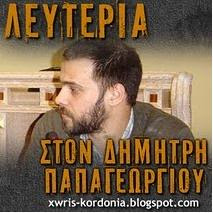


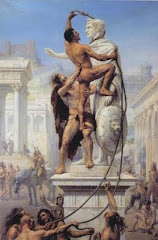





















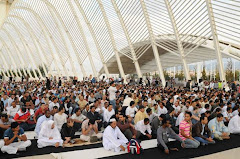


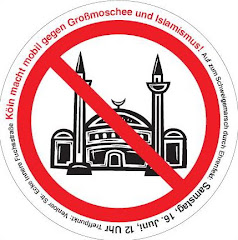

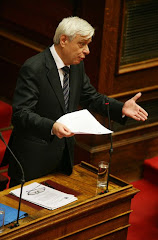
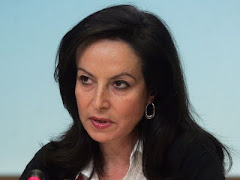






Δεν υπάρχουν σχόλια:
Δημοσίευση σχολίου
ΣΧΟΛΙΑ